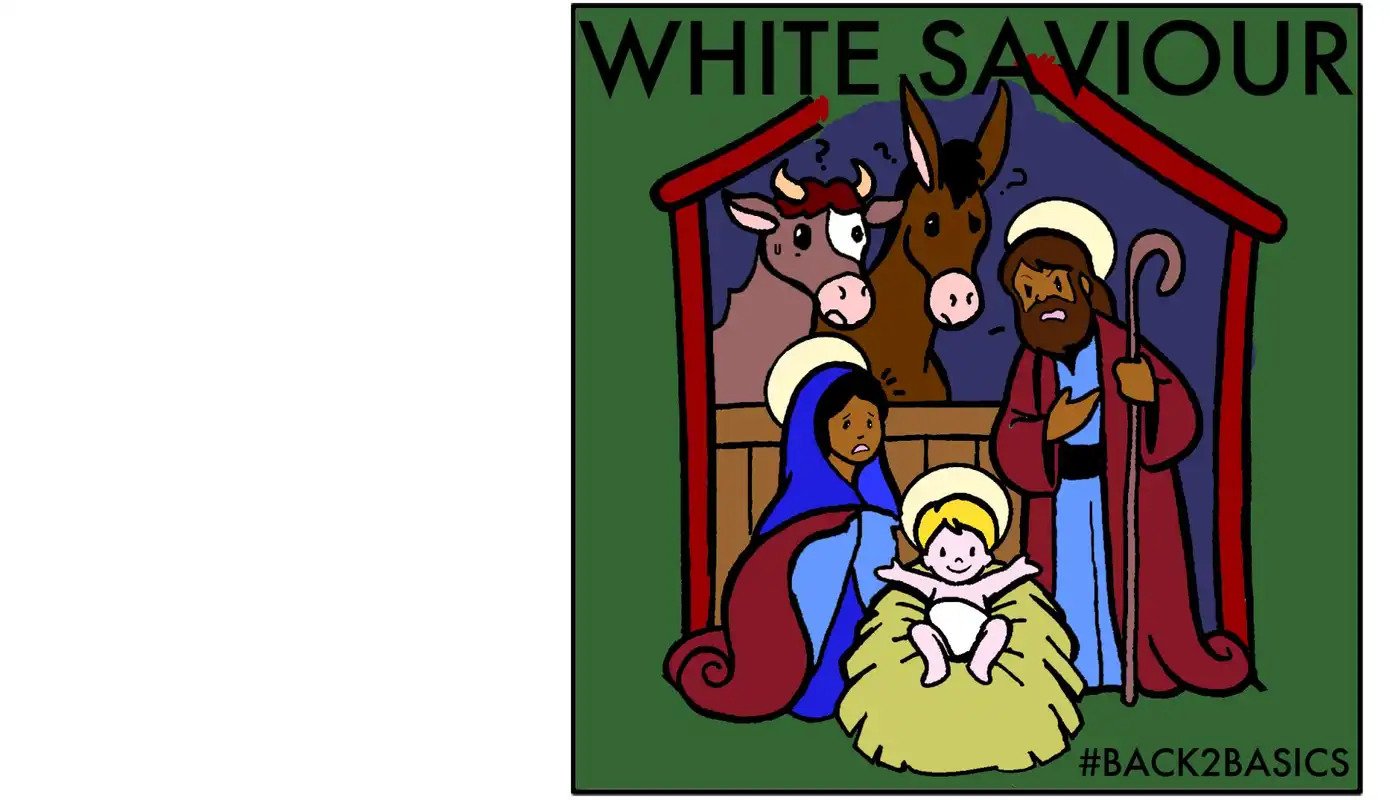Despite widely-held misconceptions by the followers of his twitter tribute account, whitewashed Jesus was not the OG white saviour. Sure, he healed lepers and stuff, but actually-brown-but-widely-believed-to-be-white Jesus did not have the institutional support, the social capital (see: capable of using short lived philanthropic acts on his university applications to make him seem worldly and empathetic) or the Instagram filters necessary to making all his pictures with unnamed black babies seem endearing to be the predecessor of any modern day white saviour.
Yet since the 18th century, the mythic conception of Jesus as the OG white saviour is what has probably inspired the droves of white Christians who decided to do the Lord’s good work and head out to the colonies to ‘guide’ the brown and black heathens of the world to the righteous path. Think St. John in Jane Eyre who was all like, “Yo Jane, I know you don’t love me and stuff but like you need to sacrifice yourself and marry for the sake of those brown misguided souls in India who we can only save as lawfully wedded husband and wife”.
And while most modern day white saviours are probably not like St. John, their seemingly ‘charitable’ acts of giving and helping depend on the same narrative, the idea that white people need to make sacrifices in order to save brown and black people from themselves. In this narrative, white people come out as selfless, enlightened and empathetic while people of colour are characterised as helpless, passive and with nothing to offer other than a site for white self-actualisation.
The issue isn’t white people wanting to help brown and black people. It’s about the inherent power imbalance in interactions where those doing the helping determine the terms and conditionalities on which help is received. Many a missionary mission to the colony would make proclamations like, what locals really need is Christianity and redemption. So, we’re going to build a Church. And if we have the time and extra funds, we may consider catering to basic healthcare needs as well as paying towards the development of the local’s new agricultural scheme.
Today’s White Saviour Industrial Complex is less about bringing the heathens ‘the good news’ and more about white people with no experience in construction, or any other business for that matter, going to exotic locations to build poorly constructed houses using climatically ill-suited materials for locals. Such expensive trips become emotional experiences through which white people can be reminded of just how fortunate and privileged they are, whilst being able to claim the much coveted label of “humanitarians of tinder” (see: Swedish House Mafia – Save The World for an appropriate soundtrack).
But what’s perhaps most damaging about these encounters, and what makes the power imbalance so obvious, is that these brown and black people can’t afford to, don’t gain any social capital from and don’t have the visa access to go into Western countries and return the favour. In fact, outside the context of so-called humanitarianism these brown and black people are viewed as dangerous, illegal and a socio-economic drain on the State.
So the next time someone is about to set out to be white saviour, intentionally or unintentionally, tell them to ask themselves, what would actually-brown-but-widely-believed-to-be-white Jesus do? (WWABBWBTBWJD?)
Related links:
The White-Savior Industrial Complex
Asking for a Friend: I’m an American NGO Worker in Rural West Africa—How Do I Date Here?
Annual NGO ranking shows that the “white savior” status quo remains intact
Trevor Noah – UNICEF Spoof – WROARF Public Service Announcement
Africa For Norway – New charity single out now!
Back to Basics is a Skin Deep project aiming to redefine and reevaluate words or expressions that we hear regularly in our daily lives and in the media, that are often decontextualized and poorly defined. We want to give different, and hopefully clearer, perspectives on what these terms mean, to provide you over time with a little handbook of quick and shareable definitions for when you need them most.
Back To Basics: White Saviour
